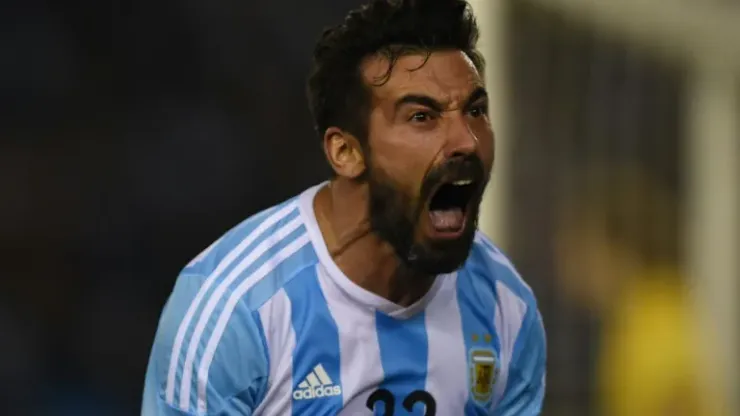Paris Saint-Germain’s Argentine forward Ezequiel Lavezzi has signed with Hebei China Fortune, his new club said Wednesday, making the 30-year-old the latest European-based footballer drawn east by jaw-dropping sums.
Hebei described him as “the next Maradona” on a verified social media account. It did not disclose a transfer fee, but previous British press reports said Lavezzi would earn 23.5 million pounds ($33.6 million) over two years.
“His arrival will make the team’s attack more incisive, we look forward to him showing off his brave spirit,” the Chinese club added.
Website transfermarkt, which tracks commercial developments in the sport, gave the transfer fee as 5.5 million euros ($6.1 million).
Chinese teams have been splashing their cash in Europe, as wealthy owners embrace President Xi Jinping’s vision of the sleeping Asian giant becoming a new footballing heavyweight.
Hebei China Fortune are owned by a Beijing-based developer of industrial parks, founded by billionaire Wang Wenxue.
At the club, Lavezzi will join Ivorian striker Gervinho, who signed for 18 million euros in January, along with Cameroon captain and former Marseille centre-back Stephane Mbia.
Lavezzi joined PSG in 2012 for 30 million euros from Napoli, but has been used mainly as a substitute this season, with just three league starts.
The current transfer window shuts on February 26 in China, and has already seen big-money moves by Brazilians Alex Teixeira and Ramires, along with Colombia’s Jackson Martinez, to join the cash-flush China Super League.
The Chinese transfer fee record has been smashed four times in the current transfer window, culminating in Jiangsu Suning paying Shakhtar Donetsk 50 million euros for Teixeira.
This week, China-based Australian footballer Tim Cahill — who later had his contract terminated by Shanghai Greenland Shenhua — said that many of the new arrivals were motivated by greed.
“You’re turning down Liverpool, you’re leaving Chelsea,” Cahill told an Australian television station, referring to the former clubs of Teixeira and Ramires.
“The choices that players are making are not about football like it was in my day, they’re purely about personal gains and it depends what you want as an individual,” he said.
“Is it going to help players? No. Is it going to be big for the country? Yes.”
China is pumping money into the beautiful game, hoping to build a national football culture to match its rising economic and military might.
Chinese businesses have invested huge sums in football since Xi declared that hosting, qualifying for, and winning a World Cup were national goals — even though the country is currently ranked a lowly 93rd in the world by FIFA.
200+ Channels With Sports & News
- Starting price: $33/mo. for fubo Latino Package
- Watch Premier League, Women’s World Cup, Euro 2024 & Gold Cup
The New Home of MLS
- Price: $14.99/mo. for MLS Season Pass
- Watch every MLS game including playoffs & Leagues Cup
Many Sports & ESPN Originals
- Price: $10.99/mo. (or get ESPN+, Hulu & Disney+ for $14.99/mo.)
- Features Bundesliga, LaLiga, Championship, & FA Cup
2,000+ soccer games per year
- Price: $5.99/mo
- Features Champions League, Serie A, Europa League & Brasileirāo
175 Premier League Games & PL TV
- Starting price: $5.99/mo. for Peacock Premium
- Watch 175 exclusive EPL games per season






